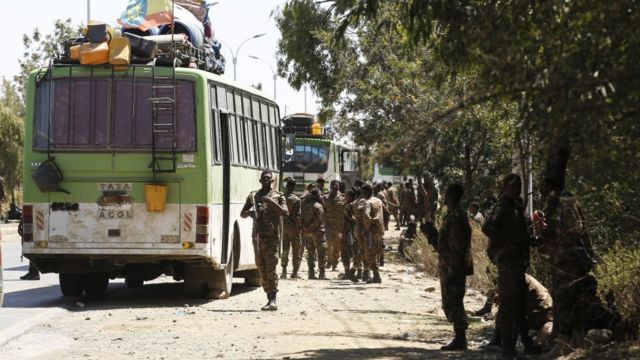Xinhua Commentary: BRICS gains charm as global dynamics shift

JOHANNESBURG, Aug. 22 (Xinhua)
Seventeen years since its inception, BRICS is convening its annual summit here on an unprecedented scale, prioritizing its partnership with Africa and mulling over its role in bolstering the Global South.
It is significant both as the first in-person BRICS gathering in more than three years and one which pools wisdom from beyond the five major emerging national economies -- Brazil, Russia, India, China and South Africa.
The world has been keeping tabs on this year's summit, which brings African countries together for a bigger pie of the global economy and to fill up the considerable gap in global governance.
Notably, more than 40 countries, including Iran, Saudi Arabia, Argentina and Bangladesh, have signaled their intent for BRICS membership. The growing list of aspirants queuing up to join the grouping, initially composed of the five emerging markets, speaks to its allure and inclusiveness.
This is not tall talk. BRICS countries have a combined population of over 3.2 billion people, accounting for some 40 percent of the world's roughly 8 billion population. Together, they represent a quarter of the global GDP and account for 16 percent of world trade.
By incorporating African countries in this year's talks, BRICS delivers the message that multilateralism and common development must include the Global South. These emerging markets are becoming an essential driving force for global growth and promoting more democratic international relations.
"BRICS has tapped into a demand that wasn't being met elsewhere," said Rebecca Ray, a senior researcher at the Boston University Global Development Policy Center. Many are pinning hopes on these "BRICS Plus" hopefuls to bring fresh blood to the grouping as it expands its representation for a large group of developing countries feeling undervalued or left behind by a Western-dominated world.
Such a world is malfunctioning. The pandemic, for instance, has laid bare the ingrained structural inequalities and an incapable and indifferent West. Not to mention a global climate response, among other Sustainable Development Goals. It is under question if wealthy and resourceful developed countries can genuinely deliver on their promises with reliable leadership.
The Global South, reeling from the shocks of the coronavirus, an ongoing Ukraine crisis and the U.S. Fed's aggressive rate hikes, has come to its senses: The only viable way out is self-strengthening and interdependence with like-minded nations aboard the same boat.
The crux of the global woes is "economic concentration that leaves too many nations at the mercy of too few," Indian Foreign Minister Subrahmanyam Jaishankar said, urging the gathering to "send out a strong message that the world is multipolar, that it is rebalancing."
Increasingly, BRICS is seen as a mechanism that can help fix the flawed global system that lacks transparency, justice and fairness.
Many countries in the Global South seek an alternative to the current world order, dominated by a collection of alliances led by the United States and marred by divisive geopolitical issues. They look to the BRICS nations to speak up for their overlooked development rights.
Over the years, cooperation has expanded on multiple fronts, underpinned by the New Development Bank. Established in 2015, the bank is a supporting facility to mobilize resources for infrastructure and sustainable development projects.
Figures released by the bank earlier this year showed that it has approved nearly a hundred projects with a total value of 33.2 billion U.S. dollars, significantly contributing to its member countries' economic and social development and bolstering its own green and sustainable credentials.
Meanwhile, BRICS members have advocated a partnership on the new industrial revolution to deepen cooperation in digitalization, industrialization and innovation. This helps smooth the flow of goods and services and stabilize the industrial and supply chains amid protectionist tech curbs and rising decoupling moves from the West.
Indeed, BRICS countries gather not in a closed club or an exclusive circle but in a big family of mutual support and win-win cooperation. This calling card alone distinguishes itself from many other groupings, which are either self-serving or hijacked by Cold War thinking.
"One key issue for the BRICS to consider is global governance. There is a need to change the current system, which is unfair and asymmetric. In particular, the architecture of the financial system needs a major reform," Carlos Maria Correa, executive director of the South Center, told Xinhua.
Through years of development, BRICS has proven as an inspiring model of harmony in diversity, exemplifying how countries with divergent interests and cultures can form a coherent whole with shared cravings for recovery, resilience and broader representation.
As a key founding member and growth contributor, China has pushed for practical cooperation within the grouping. Official data shows China has been Africa's largest trading partner for 14 consecutive years, which speaks to its pivotal role at this year's gathering. With its ample development track record and experience in poverty alleviation, China has much to offer the Global South.
The time has come for the world's often-ignored nations to have a say in global affairs. The BRICS summit in Johannesburg is the perfect place to start.
What's Your Reaction?































































































































































































































































































